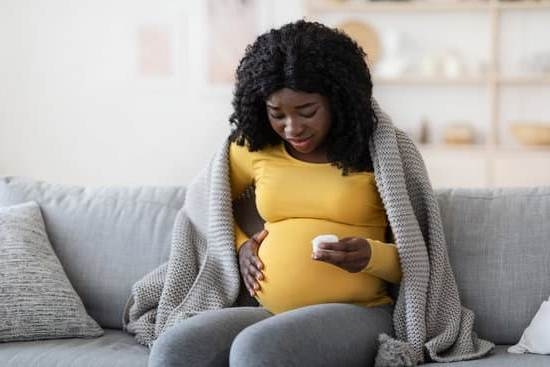Are you experiencing discomfort from leg cramps during pregnancy? It’s a common issue for many expectant mothers and can be quite bothersome. Leg cramps during pregnancy are a prevalent concern that many women face, especially during the later stages of pregnancy. Understanding why they occur and how to alleviate the symptoms can make a significant difference in your pregnancy experience.
During pregnancy, leg cramps can be an unwelcome sensation that disrupts sleep and daily activities. In this article, we’ll explore the science behind why leg cramps happen during pregnancy, as well as common triggers for these cramps in pregnant women. We’ll also provide tips for preventing leg cramps and home remedies for alleviating the discomfort. Additionally, we’ll discuss when it’s necessary to seek medical attention and how leg cramps can impact sleep and daily activities.
Whether you’re in the early stages or approaching the end of your pregnancy journey, coping with leg cramps is important for your overall well-being. By understanding the causes of leg cramps during pregnancy and learning effective strategies to manage them, you can navigate this aspect of pregnancy more smoothly. Stay tuned as we delve into this topic further and share real-life experiences from pregnant women dealing with leg cramps.
The Science Behind Leg Cramps
During pregnancy, many women experience the discomfort of leg cramps. These muscle spasms can occur at any time during pregnancy, but they are most common during the second and third trimesters. The exact cause of leg cramps during pregnancy is not fully understood, but there are several factors that may contribute to their occurrence.
One possible reason for leg cramps during pregnancy is the changes in circulation and fluid retention that can put pressure on the nerves and blood vessels in the legs. Additionally, the expanding uterus can also exert pressure on the blood vessels that return blood from the legs to the heart, leading to reduced circulation and potentially contributing to leg cramps. Hormonal changes, particularly an increase in progesterone levels, may also play a role in causing muscle contractions and spasms.
Another factor that may contribute to leg cramps during pregnancy is the increased weight and strain on the muscles and joints due to the growing fetus. This added weight can place extra stress on the legs and lead to muscle fatigue, which may trigger leg cramps. Furthermore, deficiencies in certain vitamins and minerals, such as calcium, magnesium, and potassium, which are essential for muscle function, could also be a contributing factor to experiencing leg cramps during pregnancy.
In summary, there are several potential reasons why leg cramps occur during pregnancy. From changes in circulation and hormonal fluctuations to increased weight and nutritional deficiencies, these factors can all play a role in triggering uncomfortable leg cramps for expectant mothers. Understanding these physiological changes can help pregnant women address and prevent leg cramps during this crucial period of their lives.
Common Triggers for Leg Cramps in Pregnant Women
During pregnancy, women often experience leg cramps due to a variety of triggers. These cramps can be quite painful and disruptive to daily life. Understanding the common triggers for leg cramps during pregnancy can help expectant mothers take steps to prevent and alleviate them.
Changes in Hormones
Hormonal changes during pregnancy can lead to an imbalance of electrolytes, particularly calcium and magnesium, which are essential for muscle function. This imbalance can result in muscle cramps, including those in the legs.
Physical Strain and Weight Gain
As the pregnancy progresses, the extra weight gain puts added stress on the muscles in the legs. The growing uterus also puts pressure on the blood vessels that return blood from the legs back to the heart, contributing to muscle cramping.
Dehydration
Dehydration is a common trigger for leg cramps during pregnancy. When the body becomes dehydrated, it can lead to imbalances in electrolytes and an increased risk of muscle cramping.
Awareness of these common triggers can empower pregnant women to take steps to avoid or minimize their impact on their overall wellbeing. Stay tuned for tips on preventing leg cramps during pregnancy in the next section of this article.
Tips for Preventing Leg Cramps During Pregnancy
During pregnancy, experiencing leg cramps is a common occurrence for many women. These cramps can be quite uncomfortable and disruptive, especially during the nighttime. However, there are several tips and preventive measures that pregnant women can take to minimize the occurrence of leg cramps.
Stay Hydrated
One of the simplest ways to prevent leg cramps during pregnancy is to ensure you are staying properly hydrated. Dehydration can contribute to muscle cramping, so it’s important to drink plenty of water throughout the day.
Regular Exercise
Engaging in regular physical activity, such as prenatal yoga or gentle stretching exercises, can help reduce the frequency of leg cramps. Exercise helps improve circulation and prevents muscles from becoming stiff or tense, which can contribute to cramping.
Elevate Your Legs
When resting or sleeping, propping up your legs with pillows can help alleviate pressure on your lower body and improve circulation. This simple preventative measure may reduce the likelihood of experiencing leg cramps during the night.
Incorporating these tips into your daily routine can help minimize the discomfort caused by leg cramps during pregnancy. By staying hydrated, engaging in regular exercise, and elevating your legs when possible, you may be able to prevent or reduce the frequency of these painful muscle spasms.
Home Remedies for Alleviating Leg Cramps
Leg cramps during pregnancy can be incredibly uncomfortable and disruptive to daily activities. Finding relief through home remedies is a common goal for many pregnant women experiencing this issue. Fortunately, there are several effective methods for alleviating leg cramps without the need for medication.
One popular home remedy for leg cramps during pregnancy is regular gentle stretching exercises. This can help to prevent and reduce the frequency of cramps by keeping the muscles in the legs relaxed and flexible. Activities like prenatal yoga or simple leg stretches before bed can make a significant difference in reducing the occurrence of cramps.
Another helpful home remedy is staying well-hydrated throughout the day. Dehydration can contribute to muscle cramping, so it’s important for pregnant women to drink plenty of water and other hydrating fluids to keep their bodies properly balanced. Additionally, maintaining a healthy and balanced diet that includes foods rich in essential nutrients like calcium, magnesium, and potassium can also play a role in preventing leg cramps.
Lastly, implementing relaxation techniques such as taking warm baths or using heat packs on the affected area can provide relief from leg cramps during pregnancy. These methods can help relax tense muscles and improve circulation, ultimately reducing the discomfort associated with cramping.
| Home Remedies | Effectiveness |
|---|---|
| Gentle Stretching Exercises | Reduces frequency of leg cramps |
| Hydration and Nutrition | Prevents muscle cramping |
| Relaxation Techniques | Provides relief from discomfort |
When to Seek Medical Attention for Leg Cramps During Pregnancy
During pregnancy, experiencing leg cramps is a common occurrence for many women. While they can be uncomfortable and sometimes painful, most leg cramps are harmless and can be managed with some simple remedies and lifestyle changes. However, there are instances when seeking medical attention for leg cramps during pregnancy is necessary. Here are some signs that indicate it’s time to consult with a healthcare provider:
1. Prolonged or severe pain: If your leg cramps are extremely painful and last for an extended period, it could be a sign of an underlying issue that needs medical attention. Persistent pain should never be ignored, especially during pregnancy.
2. Swelling or redness: If you notice any unusual swelling or redness in the affected area along with leg cramps, it could indicate a blood clot or other vascular problem. This should be addressed by a healthcare professional promptly.
3. Numbness or tingling: Leg cramps accompanied by numbness or tingling sensations could be a sign of nerve compression or other neurological issues that require medical evaluation.
In addition to these signs, if you have any concerns about the frequency or intensity of your leg cramps during pregnancy, it’s always best to seek advice from your obstetrician or midwife. They can provide guidance and determine whether further evaluation is necessary to ensure the health and well-being of both you and your baby.
It’s important for pregnant women to remember that while occasional leg cramps are normal during pregnancy, there are certain warning signs that should not be overlooked. Seeking medical attention when needed can help address any underlying issues and provide peace of mind during this special time in life.
The Impact of Leg Cramps on Sleep and Daily Activities
Leg cramps during pregnancy can have a significant impact on sleep and daily activities for expectant mothers. These painful spasms in the legs often occur at night, disrupting sleep and leaving women feeling exhausted during the day. The discomfort from leg cramps can make it challenging for pregnant women to perform their regular daily tasks, such as walking, standing, or even sitting for long periods of time.
In addition to affecting sleep and daily activities, leg cramps during pregnancy can also cause heightened stress and anxiety for expectant mothers. The fear of experiencing sudden pain and the uncertainty of when leg cramps may strike can lead to increased levels of stress, which is not ideal during pregnancy.
Furthermore, the lack of adequate rest due to leg cramps can contribute to feelings of fatigue and overall discomfort for pregnant women. This can affect mood, energy levels, and general well-being, making it crucial for expectant mothers to find effective ways to alleviate leg cramps and improve their quality of life during this delicate time.
| Impact on Pregnancy | Data |
|---|---|
| Sleep Disruption | Disruptive leg cramps can lead to lack of sleep |
| Daily Activities | Painful leg cramps can make it difficult to perform usual tasks |
| Mental Health | Increased stress and anxiety due to fear of experiencing sudden pain |
Real-Life Experiences
During pregnancy, many women experience leg cramps, which can be painful and disruptive. It is a common symptom that occurs due to a combination of factors, including changes in blood circulation, hormonal imbalances, and the weight gain that comes with carrying a baby. To help shed light on this experience, we have asked pregnant women to share their stories and coping strategies for dealing with leg cramps.
Here are some real-life experiences from pregnant women dealing with leg cramps:
- “I experienced excruciating leg cramps during my second trimester. It was especially challenging at night when I was trying to sleep. I found relief by gently massaging my legs and doing some light stretches before bed.”
- “For me, dehydration seemed to be a major trigger for my leg cramps. I made sure to drink plenty of water throughout the day and it helped reduce the frequency of the cramps.”
- “I struggled with leg cramps during both of my pregnancies. Warm baths and using a heating pad on my legs provided me with temporary relief. My doctor also recommended adding more potassium-rich foods like bananas and sweet potatoes to my diet.”
These real-life experiences highlight the diverse ways in which pregnant women cope with leg cramps, showing that different methods work for different individuals. By sharing these stories, we hope to provide support and solidarity for those experiencing this discomfort during pregnancy.
Conclusion
Leg cramps during pregnancy can be a challenging and uncomfortable experience for many women. The science behind why these cramps occur during pregnancy is still not fully understood, but common triggers such as changes in circulation, increased pressure on the nerves, and mineral imbalances are thought to play a role. As a result of these triggers, pregnant women may experience leg cramps at night or during their daily activities.
Despite the discomfort associated with leg cramps during pregnancy, there are various coping strategies and preventive measures that can help alleviate the severity and frequency of these cramps. From staying hydrated and doing regular stretching exercises to using proper footwear and taking warm baths before bedtime, there are many ways to potentially reduce the occurrence of leg cramps.
In addition, seeking medical attention when necessary is important to rule out any underlying conditions that may be contributing to the leg cramps.
In conclusion, while leg cramps during pregnancy can be a significant source of discomfort for women, there are various strategies and remedies available to help manage this issue. By understanding the causes of leg cramping, being proactive about prevention, and seeking appropriate medical guidance when needed, pregnant women can find relief from this common symptom and focus on enjoying their pregnancy journey.
Frequently Asked Questions
Is It Normal to Get Cramps in Legs When Pregnant?
It is quite common for pregnant women to experience leg cramps, especially during the second and third trimesters. These cramps are often caused by changes in circulation, pressure on nerves, or simply from carrying the extra weight of the baby.
How Do You Get Rid of Cramps During Pregnancy?
There are several ways to alleviate leg cramps during pregnancy. Staying hydrated, doing gentle exercises like walking or swimming, and maintaining a balanced diet with enough calcium, magnesium, and potassium can help prevent cramping. Massaging the affected muscles and applying heat or cold packs can also provide relief.
How Do You Stretch During Pregnancy for Leg Cramps?
Stretching is an effective way to prevent and relieve leg cramps during pregnancy. Gentle stretches for the calf muscles such as standing calf stretch against a wall or using a towel to pull the foot towards you while sitting can help reduce the frequency and intensity of cramps.
Additionally, doing daily pregnancy-safe yoga routines that focus on stretching can also be beneficial for preventing leg cramps.

Welcome to my fertility blog. This is a space where I will be sharing my experiences as I navigate through the world of fertility treatments, as well as provide information and resources about fertility and pregnancy.





